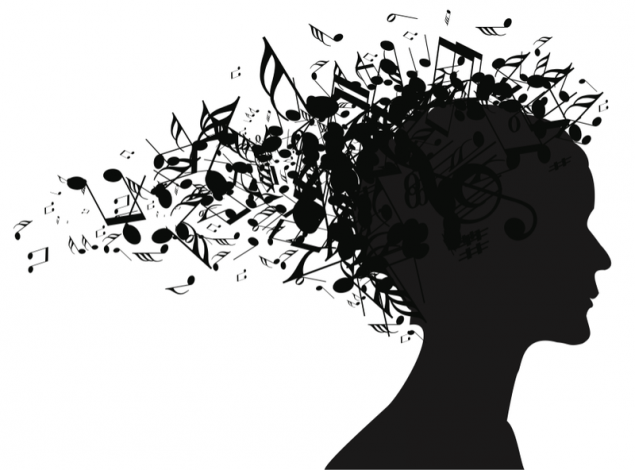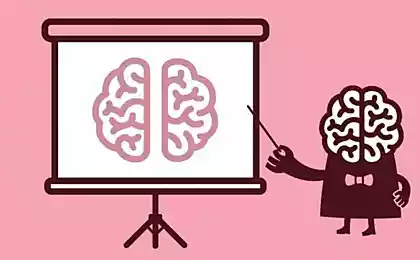256
The Mozart Effect: The healing power of music
The most extraordinary music is that of Mozart: neither fast nor slow, smooth but not boring, and charming in its simplicity. This musical phenomenon, which has not yet been fully explained, is called the Mozart Effect. Popular actor Gerard Depardieu experienced it to the fullest. The fact that came to conquer Paris young Jéger, did not speak French well and also stuttered. Alfred Tomatis advised Gerard to listen to Mozart for at least two hours every day. "The Magic Flute" can actually work wonders - a few months later, Depardieu spoke as he sang. The uniqueness and extraordinary power of Mozart’s music is most likely due to his life, especially the circumstances that accompanied his birth. Mozart was conceived in a rare environment. His prenatal existence was a daily immersion in the world of music. The violin of his father sounded in the house, which, of course, had a tremendous influence on the development of the nervous system and the awakening of cosmic rhythms in the womb. His father was a Kapellmeister, i.e. conductor of choral and musical chapels in Salzburg, and his mother, the daughter of a musician, played a huge role in his musical development. She sang songs and serenades during her pregnancy. Mozart was born literally fashioned out of music.

The power of Mozart's music first attracted public attention thanks to groundbreaking research at the University of California in the early 1990s. At the Irvine Center for Neuroscience, which studies the processes of pedagogy and memory, a group of researchers began studying the effects of Mozart’s music on students and adolescents. Francis H. Rauscher, Ph.D., and her colleagues conducted a study in which thirty-six university graduates from the Department of Psychology were tested for the Spatial Intelligence Index (on the standard Stanfort da Binet Intellectual Scale). The result was 8-9 points higher in subjects who listened to the Sonata for two Mozart pianos for ten minutes. Despite the fact that the effect of listening to music lasted only ten to fifteen minutes, Dr. Rauscher’s group concluded that the relationship between music and spatial thinking is so strong that even simply listening to music can have a significant effect. Mozart’s music can “warm up the brain,” suggested Gordon Shaw, a theoretical physicist and one of the researchers, after the results were announced. We assume that complex music excites equally complex neural patterns that are associated with higher forms of mental activity, such as mathematics and chess. Conversely, simple and monotonous obsessive music can have the opposite effect. The day after reports of the discovery in Irvine were published, the music stores of a major city instantly sold out all of Mozart’s recordings. However, interest in the “Mozart effect” waned slightly, as several skeptics published their doubts about the phenomenon. But on closer examination, it turned out that classical music does have a strong influence on the human brain. All experiments to study the phenomenon are based on the assumption that music affects the brain on anatomical level, makes it more mobile. And for children, it can mean the formation of neural networks, have a strong impact on the mental development of the child. Numerous opponents, trying to prove experimentally that there is no “Mozart effect”, regularly come to the conclusion that their judgments are wrong. Recently, another skeptic changed his mind about Mozart’s music. Eric Seigel of Elmhurst College in Illinois took a spatial thinking test. The subjects had to look at two letters E, one of which rotated at an angle with respect to the other. And the larger the angle, the harder it was to determine whether the letters were the same or different. The milliseconds spent by the subject comparing letters were the measure that determined the level of spatial thinking of the subject. To Seigel’s surprise, those subjects who listened to Mozart before the test defined the letters much more accurately. At Harvard University, another skeptic, psychologist Christopher Shabri, analyzed 16 studies of the Mozart effect, which involved a total of 714 people. He did not find any beneficial effect of the music of the great composer and so far concluded that the improvement in brain activity in the subjects was due to a phenomenon that psychologists call “joyful arousal”. Music improves mood, and subjects - test results. But Shabri decided to continue a series of experiments to study the phenomenon, so it is possible that soon the camp of supporters of the “Mozart effect” will be replenished by another serious scientist. The researchers concluded that regardless of the tastes or previous experience of the listeners, Mozart’s music invariably produced a calming effect on them, improved spatial perception and the ability to express themselves more clearly in the process of communication. There is no doubt that the rhythms, melodies and high frequencies of Mozart’s music stimulate and load the creative and motivational areas of the brain. published
P.S. And remember, just changing our consumption – together we change the world!
Join us on Facebook, VKontakte, Odnoklassniki
Source: www.altmedic.ru/modules/music/index.php?nvar=42008

The power of Mozart's music first attracted public attention thanks to groundbreaking research at the University of California in the early 1990s. At the Irvine Center for Neuroscience, which studies the processes of pedagogy and memory, a group of researchers began studying the effects of Mozart’s music on students and adolescents. Francis H. Rauscher, Ph.D., and her colleagues conducted a study in which thirty-six university graduates from the Department of Psychology were tested for the Spatial Intelligence Index (on the standard Stanfort da Binet Intellectual Scale). The result was 8-9 points higher in subjects who listened to the Sonata for two Mozart pianos for ten minutes. Despite the fact that the effect of listening to music lasted only ten to fifteen minutes, Dr. Rauscher’s group concluded that the relationship between music and spatial thinking is so strong that even simply listening to music can have a significant effect. Mozart’s music can “warm up the brain,” suggested Gordon Shaw, a theoretical physicist and one of the researchers, after the results were announced. We assume that complex music excites equally complex neural patterns that are associated with higher forms of mental activity, such as mathematics and chess. Conversely, simple and monotonous obsessive music can have the opposite effect. The day after reports of the discovery in Irvine were published, the music stores of a major city instantly sold out all of Mozart’s recordings. However, interest in the “Mozart effect” waned slightly, as several skeptics published their doubts about the phenomenon. But on closer examination, it turned out that classical music does have a strong influence on the human brain. All experiments to study the phenomenon are based on the assumption that music affects the brain on anatomical level, makes it more mobile. And for children, it can mean the formation of neural networks, have a strong impact on the mental development of the child. Numerous opponents, trying to prove experimentally that there is no “Mozart effect”, regularly come to the conclusion that their judgments are wrong. Recently, another skeptic changed his mind about Mozart’s music. Eric Seigel of Elmhurst College in Illinois took a spatial thinking test. The subjects had to look at two letters E, one of which rotated at an angle with respect to the other. And the larger the angle, the harder it was to determine whether the letters were the same or different. The milliseconds spent by the subject comparing letters were the measure that determined the level of spatial thinking of the subject. To Seigel’s surprise, those subjects who listened to Mozart before the test defined the letters much more accurately. At Harvard University, another skeptic, psychologist Christopher Shabri, analyzed 16 studies of the Mozart effect, which involved a total of 714 people. He did not find any beneficial effect of the music of the great composer and so far concluded that the improvement in brain activity in the subjects was due to a phenomenon that psychologists call “joyful arousal”. Music improves mood, and subjects - test results. But Shabri decided to continue a series of experiments to study the phenomenon, so it is possible that soon the camp of supporters of the “Mozart effect” will be replenished by another serious scientist. The researchers concluded that regardless of the tastes or previous experience of the listeners, Mozart’s music invariably produced a calming effect on them, improved spatial perception and the ability to express themselves more clearly in the process of communication. There is no doubt that the rhythms, melodies and high frequencies of Mozart’s music stimulate and load the creative and motivational areas of the brain. published
P.S. And remember, just changing our consumption – together we change the world!
Join us on Facebook, VKontakte, Odnoklassniki
Source: www.altmedic.ru/modules/music/index.php?nvar=42008
About mystic words — the spine
To love ourselves: practice with a mirror and 9 councils of Louise hay























